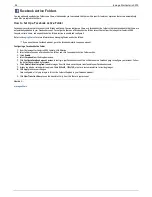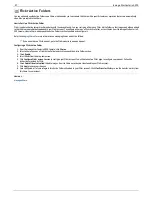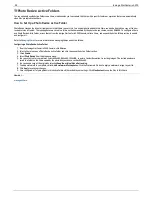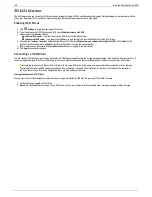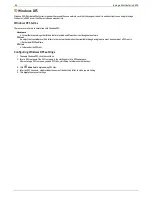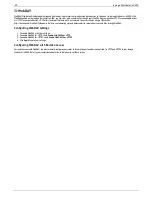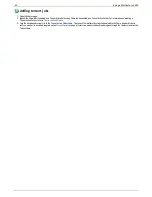
NFS
On the Protocols page, click the switch to turn on NFS (Network File System) to allow remote hosts to mount file systems over a network and interact with
them as though they were mounted locally to your Iomega StorCenter ix2-200.
Select an option to choose how users on client computers are mapped to the Iomega StorCenter ix2-200:
To have all users, including root, map as guest, select
Treat client users as guest (all_squash)
. All files are owned by user guest, and all users
accessing the Iomega StorCenter ix2-200 have the same access rights. If you have enabled Active Directory on your Iomega StorCenter ix2-200, only
this option is available for mapping client computers.
To have all users map as themselves but root maps as guest, select
Allow full access for client users other than root (root_squash)
.
To have all users map as themselves, including root, select
Allow all client users full access
.
Once enabled, add NFS access rules for each secure Share from the
Managing Shares
page. NFS provides another protocol for sharing storage data with Linux
hosts. When NFS is enabled, you can configure rules for host-based access to secure Shares.
Rules can be added to secure Shares to specify the hosts that are allowed to access Shares using NFS. For example, *.cs.foo.com matches all hosts in the
domain cs.foo.com. To export a Share to all hosts on an IP address or local network simultaneously, specify an IP address and netmask pair as
address/netmask where the netmask can be in dotted-decimal format, or as a contiguous mask length. For example, either /255.255.252.0 or /22 will result
in identical local networks.
To change any NFS settings, click
.
40
Iomega StorCenter ix2-200

